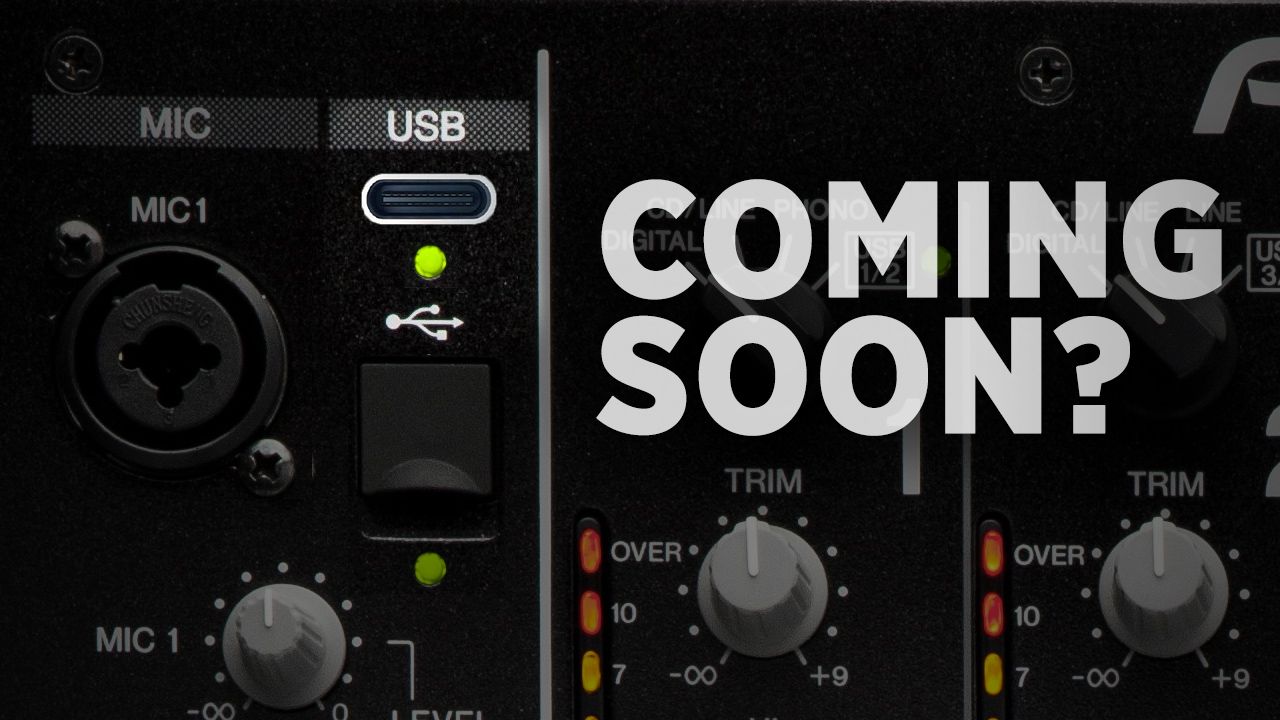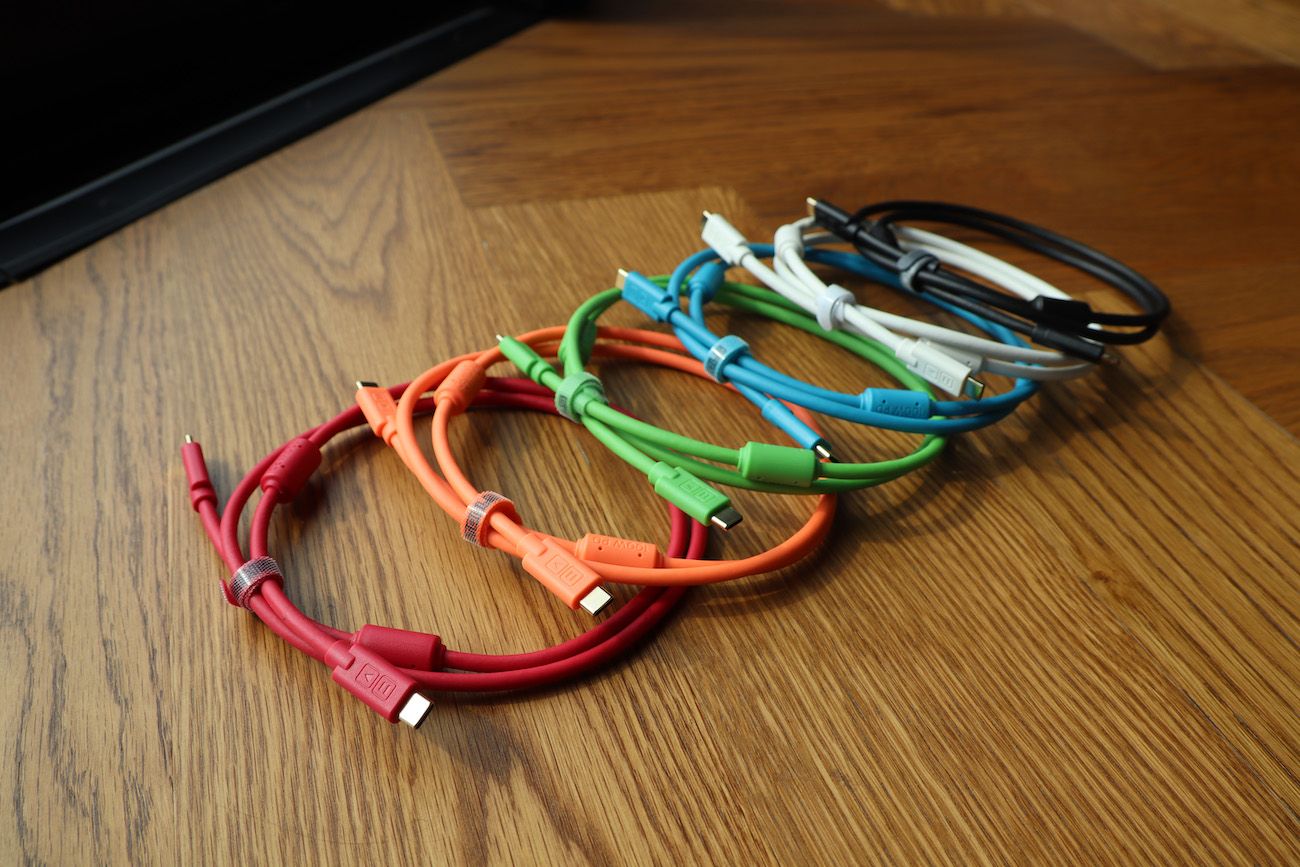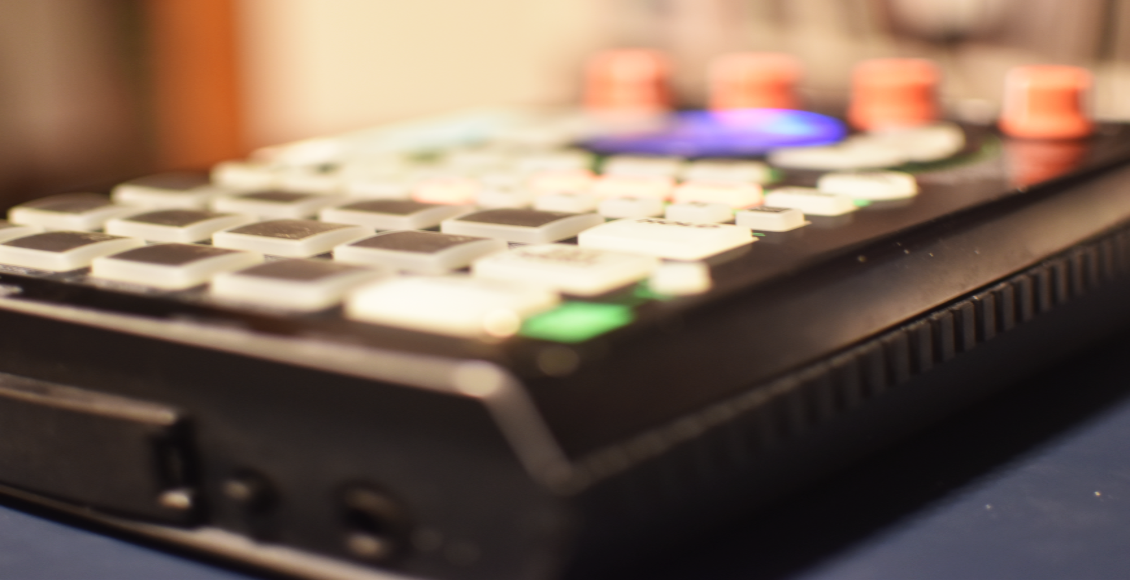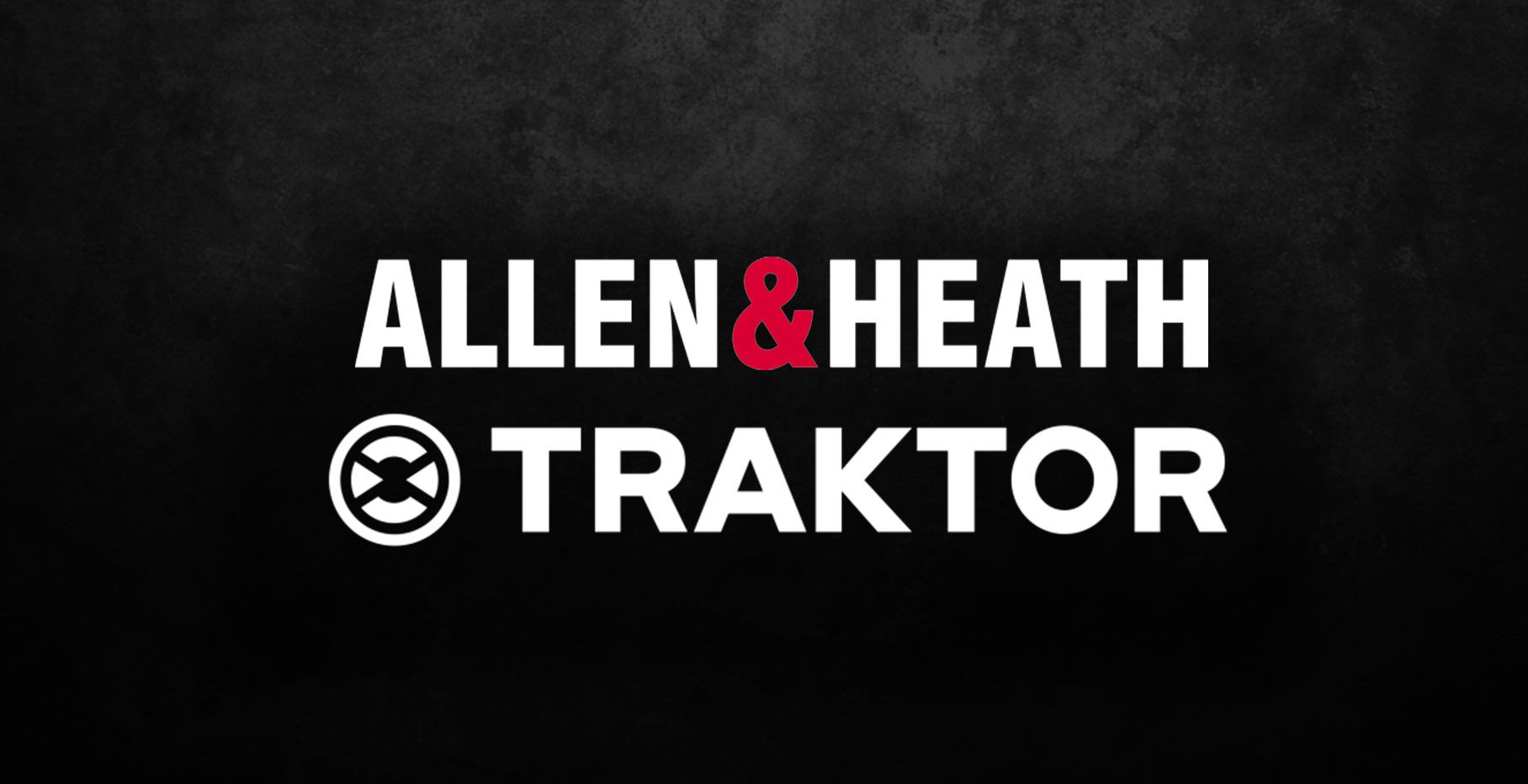Along with some PC notebooks and Android phones, Apple’s new MacBook Pro exclusively features USB-C/Thunderbolt 3 connections for power and data. In today’s article, we’ve compiled the benefits and headaches of USB-C for DJs and electronic musicians. We also reached out to major music gear manufacturers. Read what they think of the new standard, and when they might add USB-C ports into their hardware. Will USB-C be the new uber-standard or the next FireWire 800 flop?
USB-C and the MI Industry
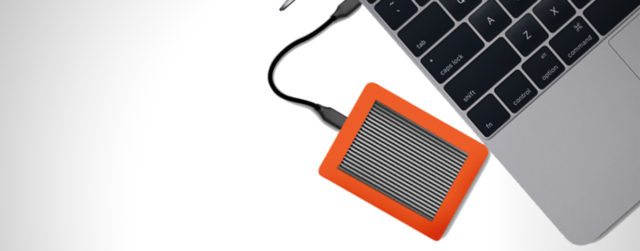
Since the inception of computer music and electronic music gear, the musical instrument (MI) industry has been slower to adopt technological standards than the computer / consumer electronics industries at large. Why?
- longer product refresh cycles for music technology
- the relatively tiny size of the MI business means manufacturers have a tougher time reaching economies of scale and negotiating for lower-priced bulk components
This has lead to a slower-then-ideal adoption of standards (SD cards, Bluetooth) into music gear, which the industry has largely caught up to. So when the latest technologies pop up, music producers and DJs always have to wonder how soon (if at all) their setups will be affected.
While the 24-pin USB-C ports started popping up on some PCs in early 2015, it didn’t make much of a splash in the music tech scene. However, when Apple festooned its long-awaited MacBook Pro laptops with nothing but USB-C ports and a 3.5 mm headphone jack at the end of October, it both granted a bright future to the USB-C standard, and sent cringes rippling through music technology circles.
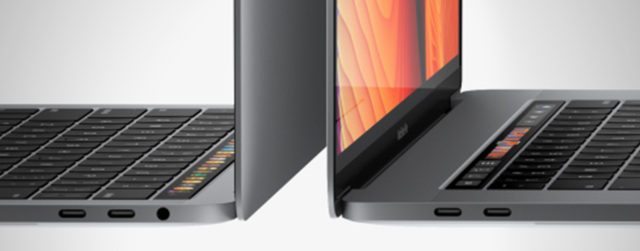
The MacBook Pro is the most ubiquitous laptop amongst pro and semi-pro music producers and DJs. Many anticipated an overdue product refresh for quite some time. While USB-C/Thunderbolt 3 ports could be an advantage down the line, there are currently no pro-audio peripherals that include the port. Using adapters can (but does not always) diminish the performance of audio interfaces and other peripherals. Adapters of all kinds are also easy to lose (think about the last time you needed a headphone adapter but couldn’t find one).
Our industry’s enthusiasm for USB-C’s advantages hinges upon how quickly and thoroughly MI gear adopts it.
Advantages of USB-C for Music Gear
- Smaller – USB-C measures 2.6 mm tall, so it can allow devices like laptops to be thinner if they don’t use any 7.5 mm tall USB-A sockets. Only certain mobile segments of music gear benefit much from ultra-thinness, but USB-C could also help free up space on often-crowded audio interfaces and controller or instrument back panels.
- Easier connection – USB-C cables are reversible and flippable; they don’t have to be connected “right side up,” and they use the same connector on each end. That will eventually help musicians and DJs set up more quickly and easily in low-light situations. Also, in case there was any doubt, USB-C connections are backwards-compatible with other USB standards.
- Powerhouse – USB-C can send video, audio and power streams simultaneously, which could mean that depending on your music setup, you may only need one wall power adapter for your laptop. Eliminating as many wall-wart and other power adapters from a live rig as possible can only make for less frustrating setups. USB-C also uses the USB 3.1 protocol by default, which has a theoretical speed of 10Gbps—twice the speed of USB 3.0.
- Thunderbolt 3 – Since Intel announced that Thunderbolt 3 would use the USB-C port type, every Thunderbolt 3 port, like the ones one the new MacBook Pros, will also work as USB-C ports, and will use the same cables. The Thunderbolt 3 protocol is even more powerful, supporting 40Gbps theoretical bandwidth and as much as 100W of power. As the most powerful protocol yet, Thunderbolt 3 promises to eliminate latency and provide for more expandability options over fewer cables (that is, if all your other gear is also compatible with USB-C).
When Will We See Massive USB-C Adoption in Music Gear?
Outlets like PCMag more or less rejoiced when Apple revealed its USB-C covered MacBook Pros, seeing it as a sign that “it won’t be long until […] USB-C is found on all manner of devices from simple external hard drives on up.” The connection is already in certain thin-form PC laptops like the Asus ZenBook 3 and in Android phones like the new Google Pixel and models from HTC and Motorola.
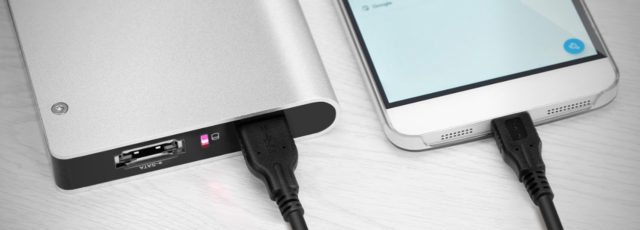
As previously mentioned, MI companies are historically slow in adopting new tech standards. It’s possible that Apple’s clout, especially in the music world, will encourage gear manufacturers that USB-C is the way of the near- and long-term future. But those purchasing the new MacBook Pro out of necessity or luxury will have to settle for struggling in a potential mire of adapters and dongles for their gear until everyone else catches up. Macworld published a helpful guide to various USB-C adapters.
Early USB-C adopters will have to hope everyone else does catch up without a lot of concrete proof for now. We contacted 10 major OEMs of music and DJ gear to try to gauge both their interest in and timetable for USB-C adoption.
As you might expect: no one wanted to give specific estimates on when their company would incorporate USB-C into their products, but the overall implication, with varying degrees of urgency, indicated that MI manufacturers would adopt USB-C when it made sense for them to do so. My own conclusion: gear manufacturers are waiting on a wide-scale adoption of USB-C computers first.
It’s nonetheless enlightening to hear some of the feedback from heavy-hitting gear manufacturers:
Korg on USB-C
Korg emphasized that it is “always innovating,” but Korg Product Specialist Nick Kwas’ comments centered on how USB-C could specifically enhance pro audio products. “[USB-C is] compact, which allows for more space for other input and output jacks,” he said. “And it allows for USB 3.1 data transfer, which might someday lead to technology that can be used to transmit USB MIDI and audio data at completely unprecedented rates and fidelity.”
Roland on USB-C
Roland issued the most affirmative response to adopting USB-C, although without any specific timing. Roland Corp., US Product Strategy Manager Brandon Ryan said, “we intend to implement USB-C in the future.” He added that because of USB-C’s wide compatibility and other advantages outlined above, “we expect USB-C to be adopted quickly and fully.”
Ryan’s further comments addressed how USB-C could benefit audio gear and the people who use it. “Increased power delivery could mean more devices that can get their power from USB, reducing cable clutter, eliminating unwieldy wall warts and speeding up setup at gigs,” he said. “It means more gear can go more places, increasing the opportunities to be creative.”
He also pointed to the benefit of USB-C possibly becoming the default cord for power and data. “USB-C cables will probably become ubiquitous, reducing the need for expensive, proprietary cables that may not be readily available, especially on location,” Ryan said.
Allen & Heath on USB-C
Allen & Heath’s response reinforced the notion that you shouldn’t assume USB-C will show up on musical equipment in the immediate future.
“We’ve observed that a large proportion of DJs are still using ‘older’ issue laptops and despite many perceptions, have no real definitive reason to upgrade the system that currently works for them,” said Allen & Heath’s Xone Marketing Specialist, Greg Ibbotson. “For DJs selecting external interfaces with a laptop, they might not (yet) require this or gain any benefit for the next three years.”
Ibbotson continued that “USB-C looks appealing, but it will be another standard caught in the multitude of connectivity options already on the markets’ various interfaces. However, as this isn’t an Apple-only standard, we could see USB-C actually long-term replace interfaces that featured the larger USB connector.”
Native Instruments declined to comment on its adoption of USB-C at this time, and Pioneer DJ, Novation/Focusrite, InMusic Brands and Keith McMillen Instruments did not return our request for comments in time for publication.
Share your thoughts below: how do you think the new connection could improve musical gear? Will you move to a USB-C computer soon?


